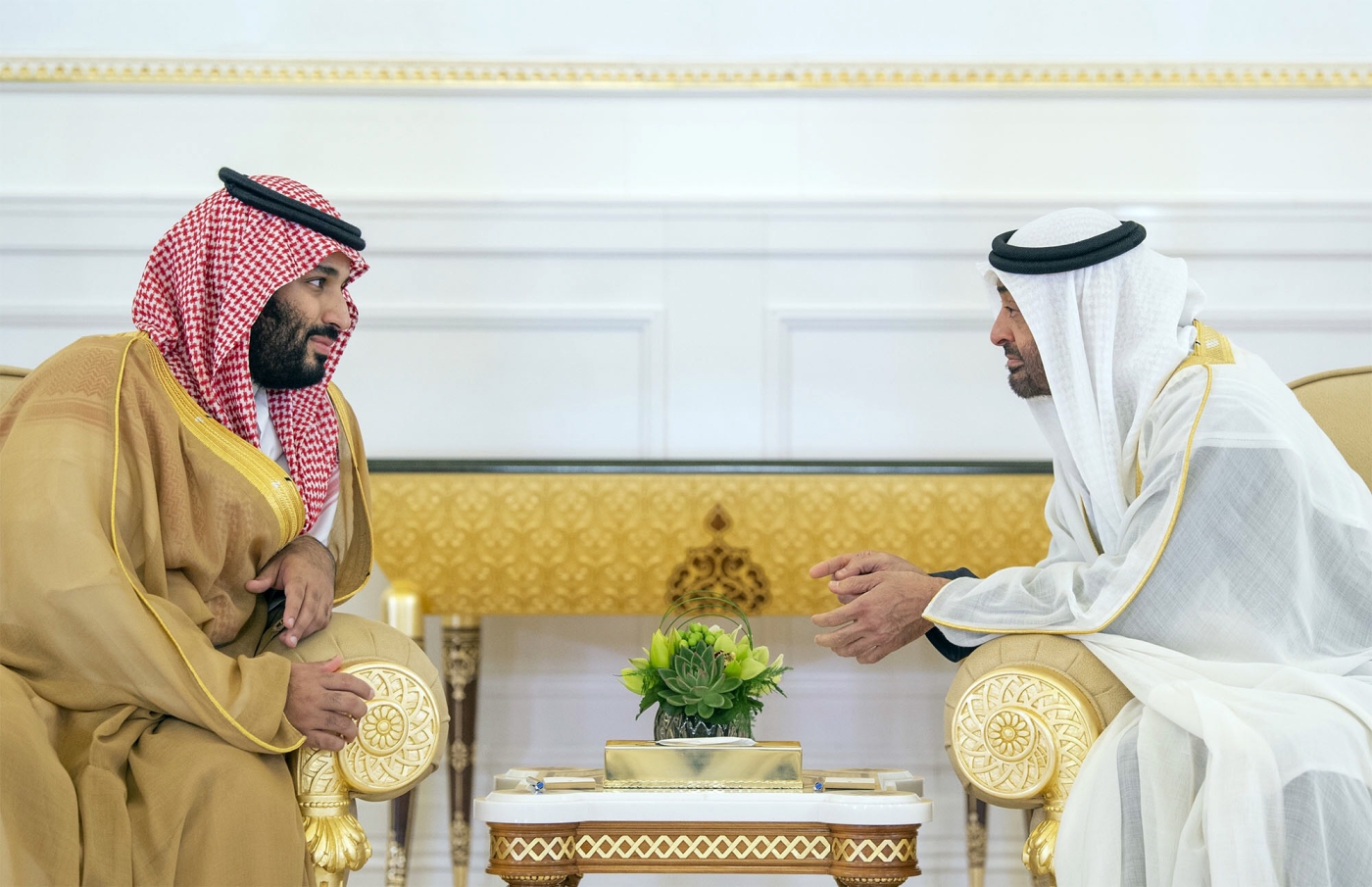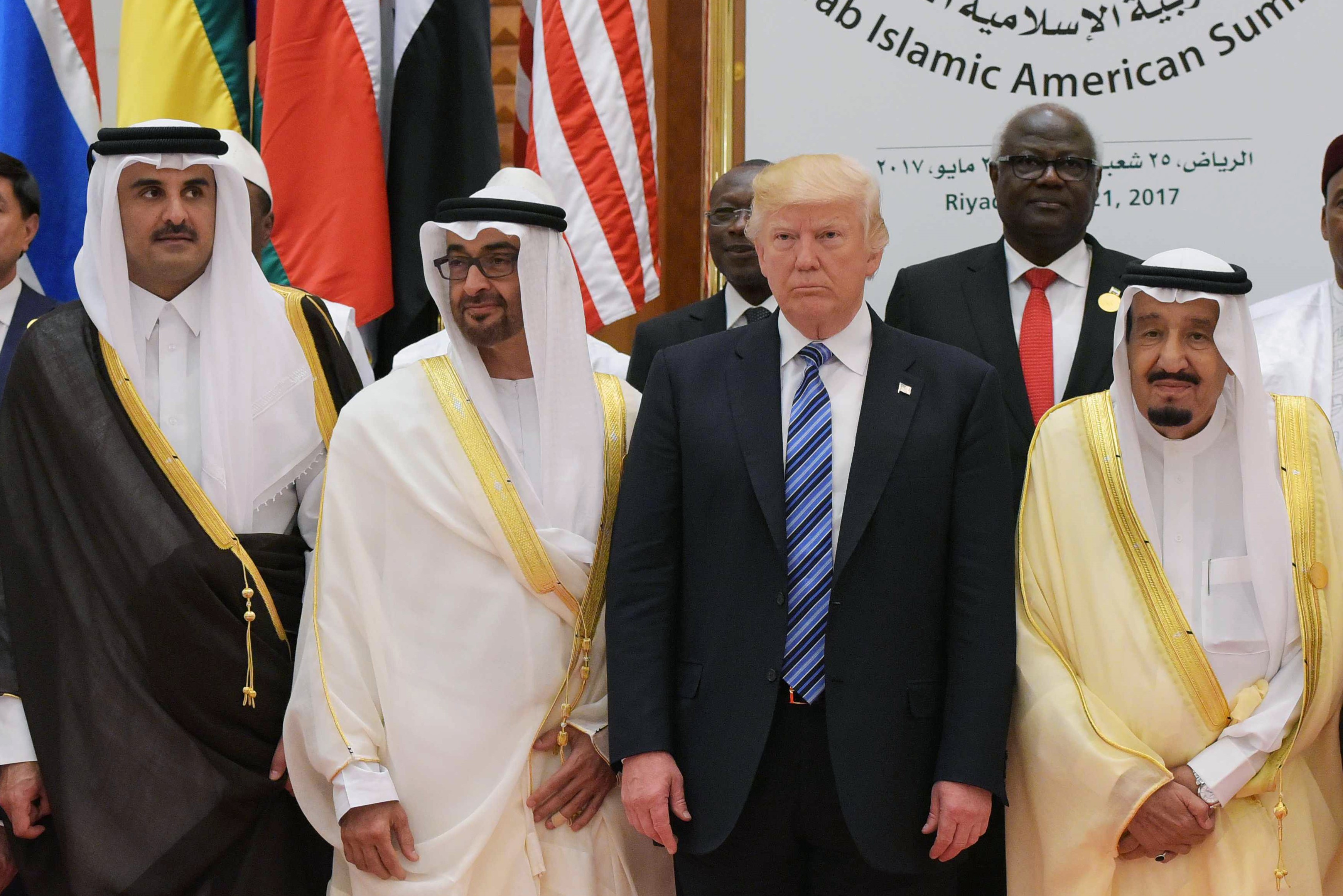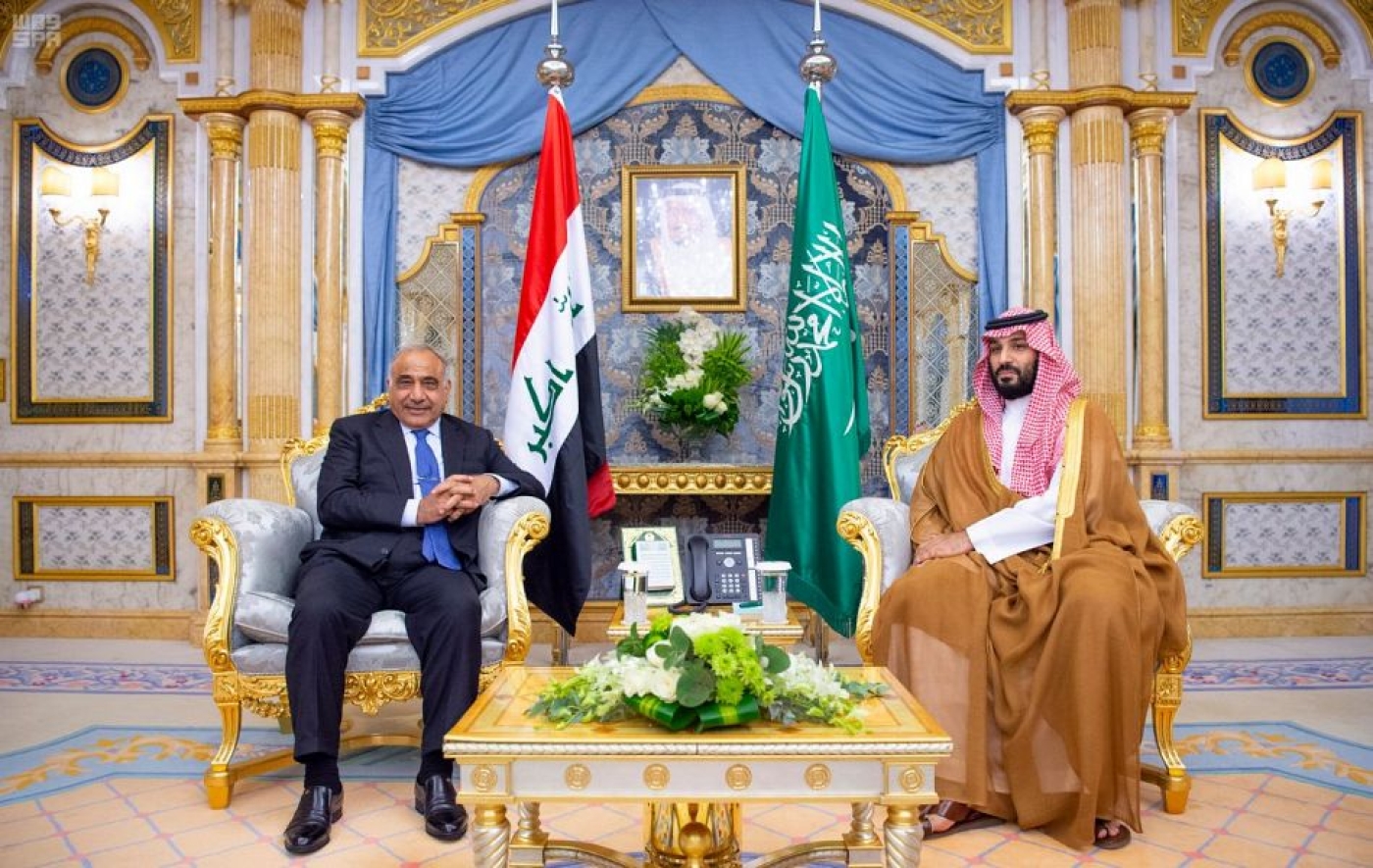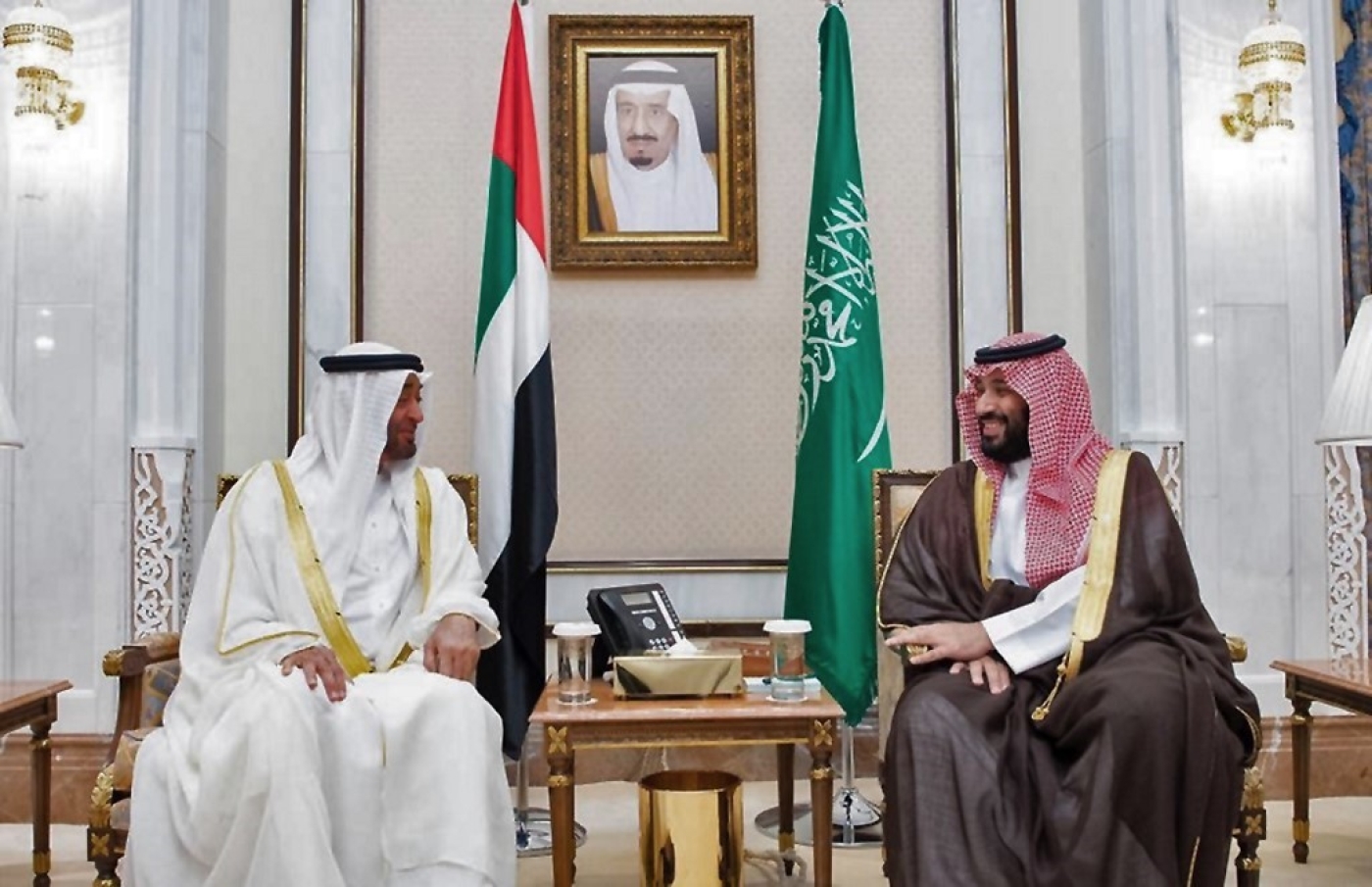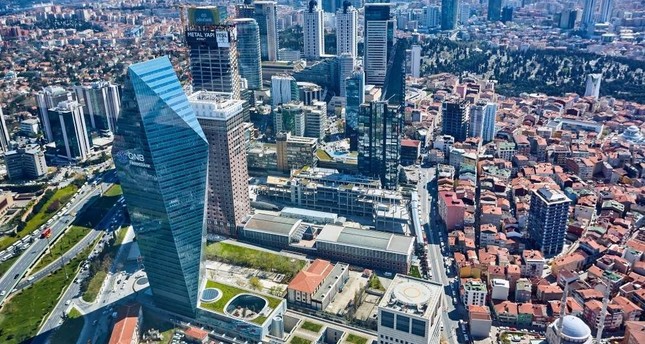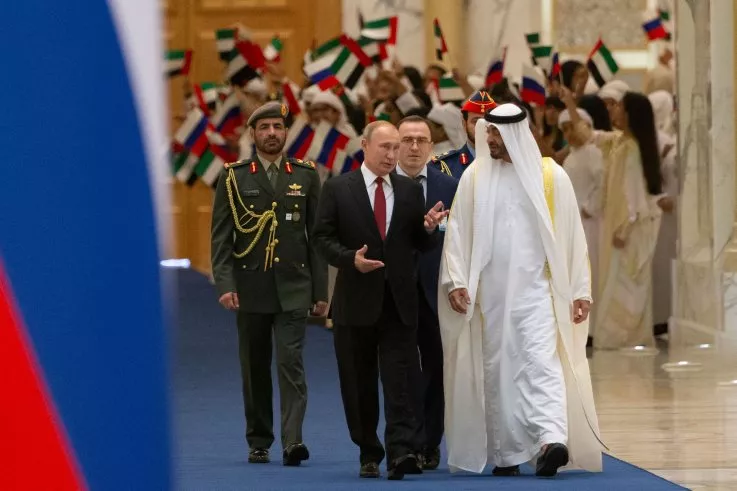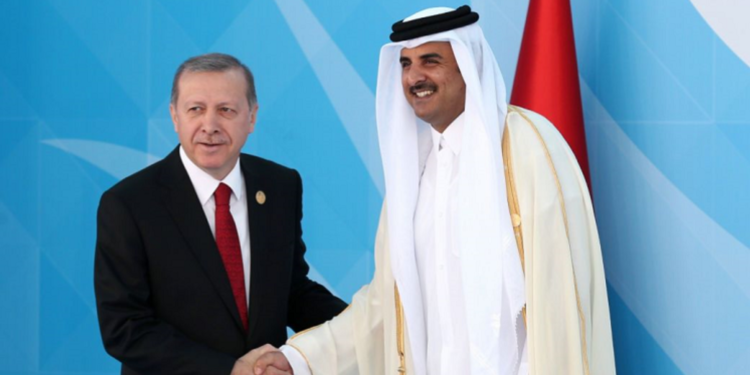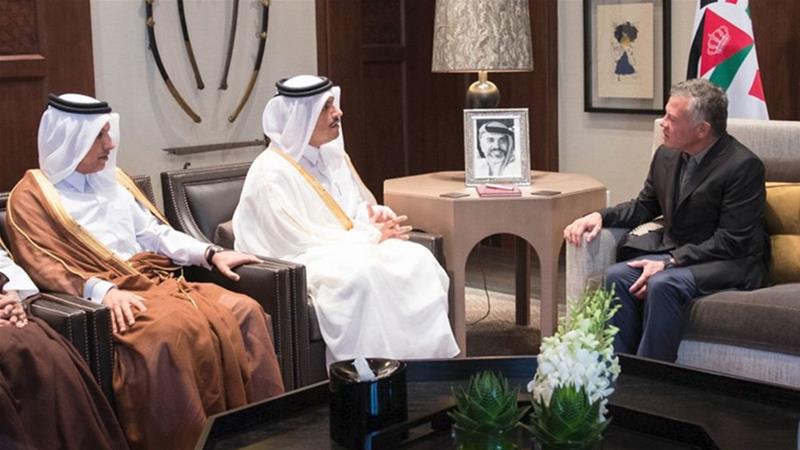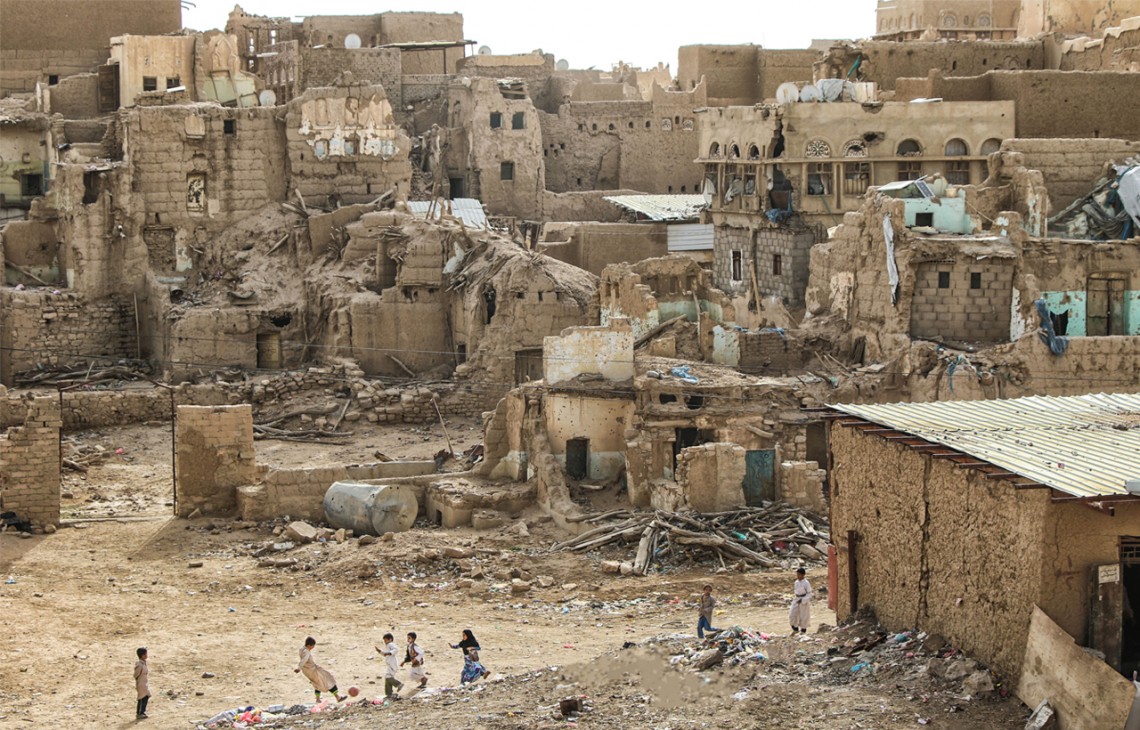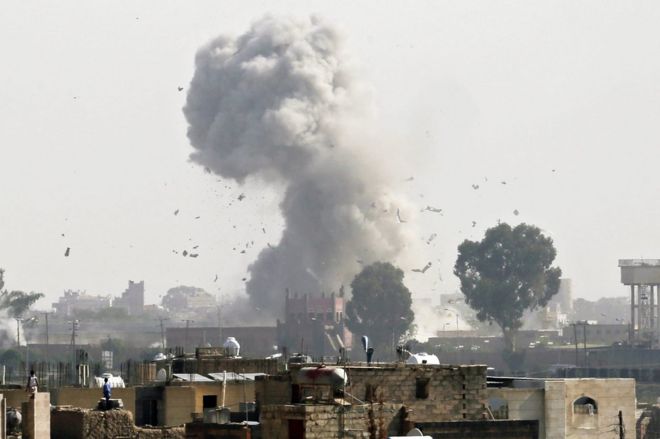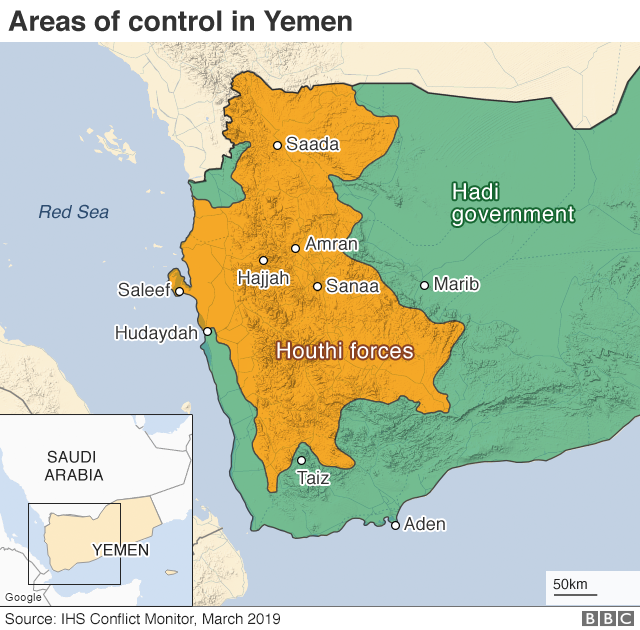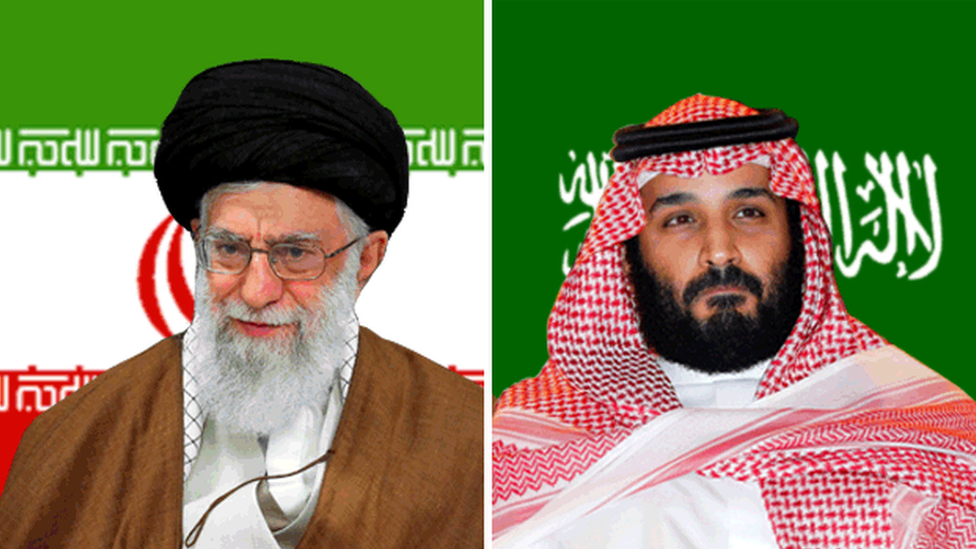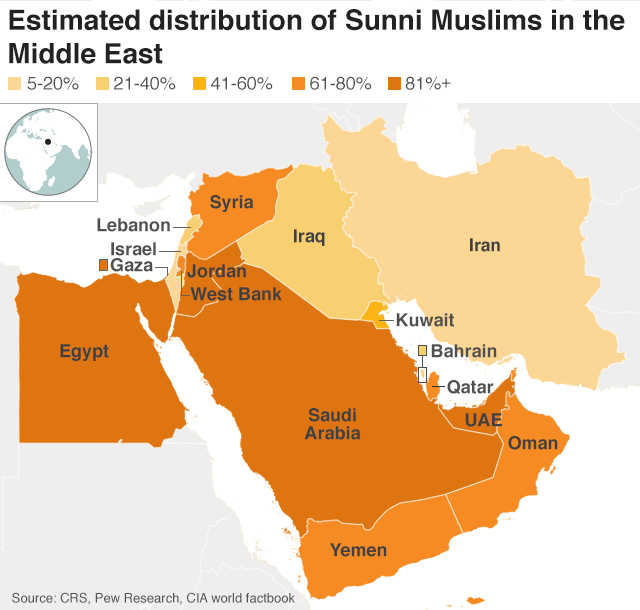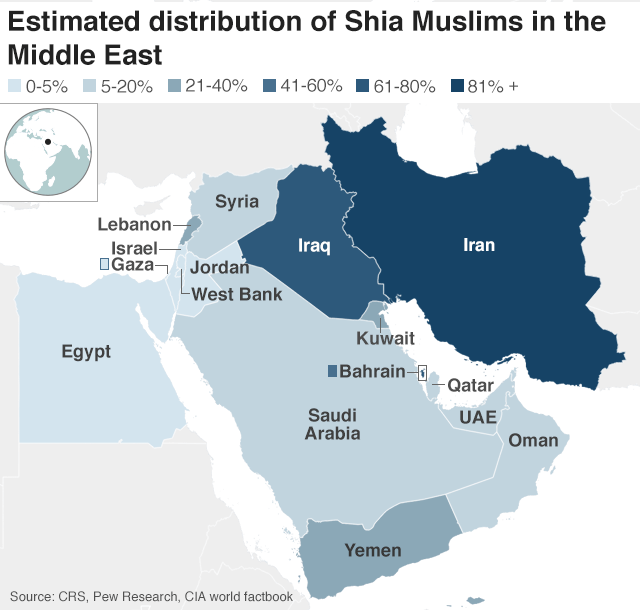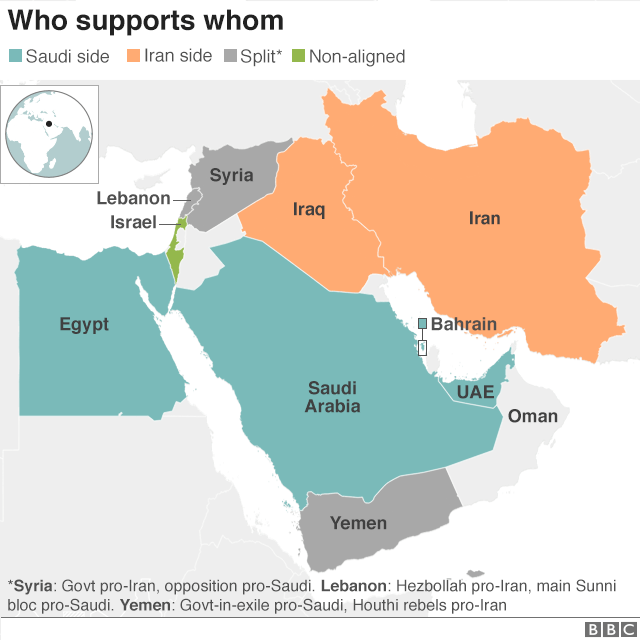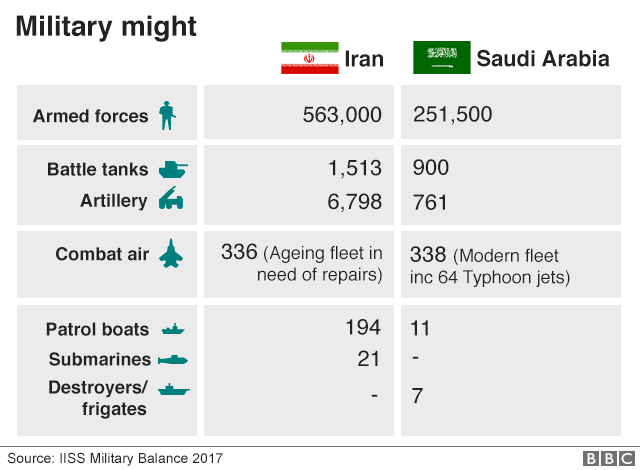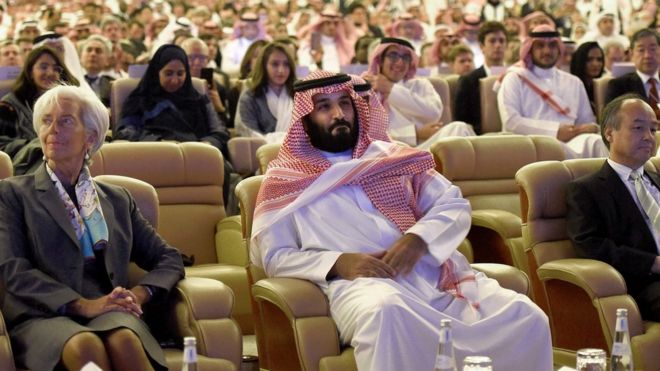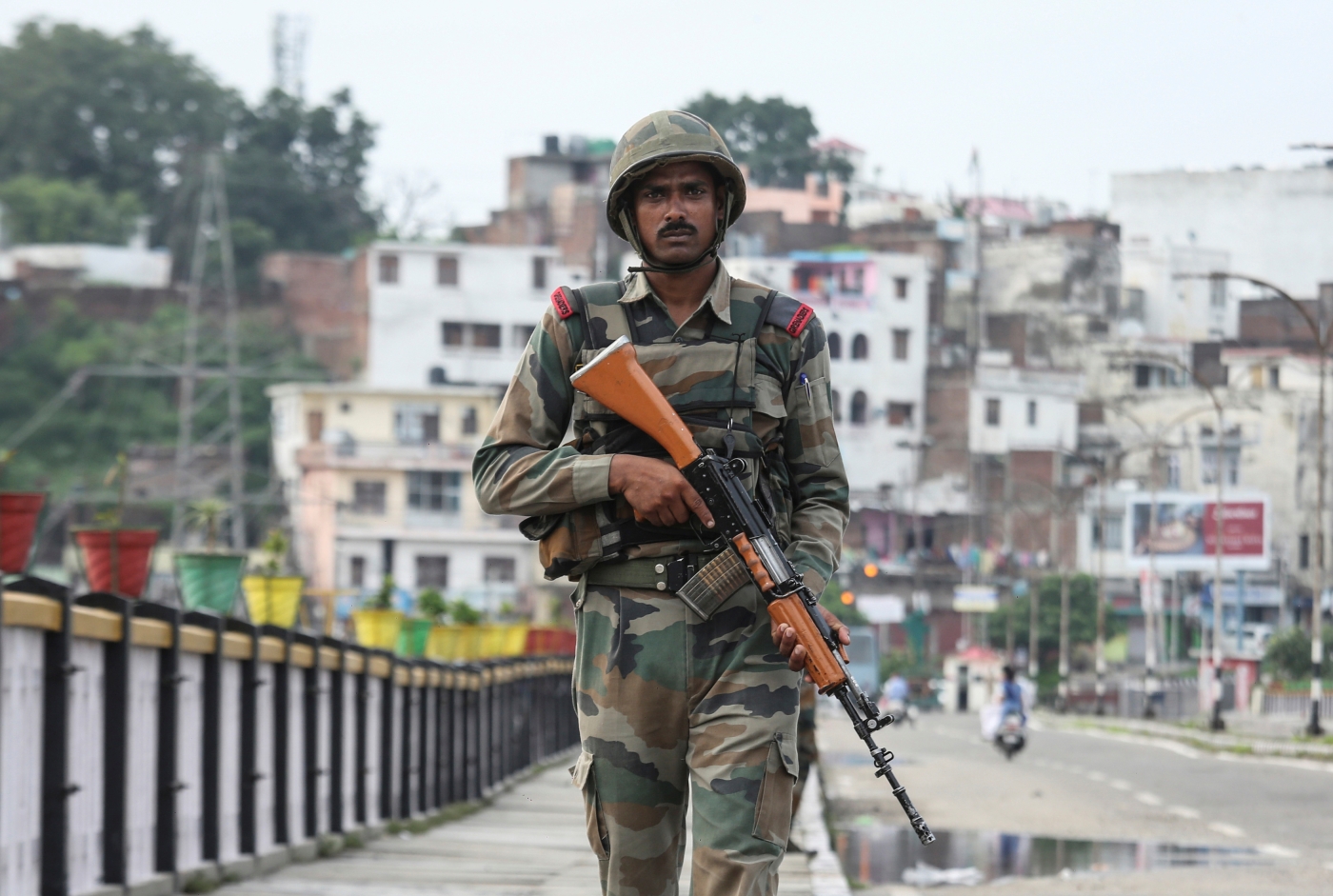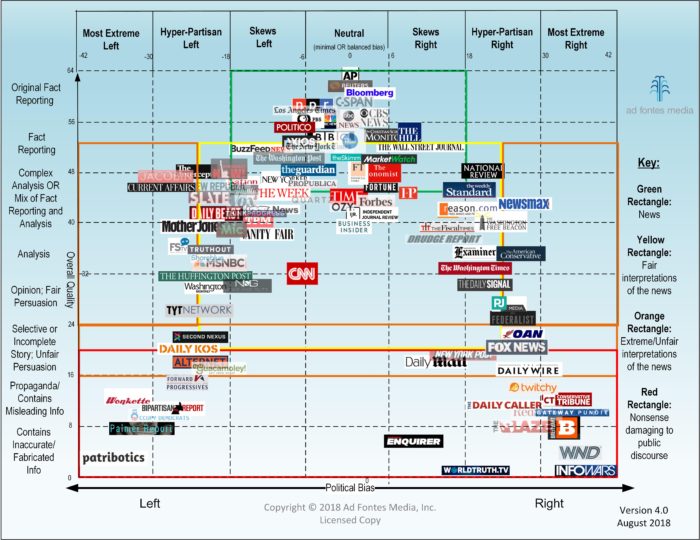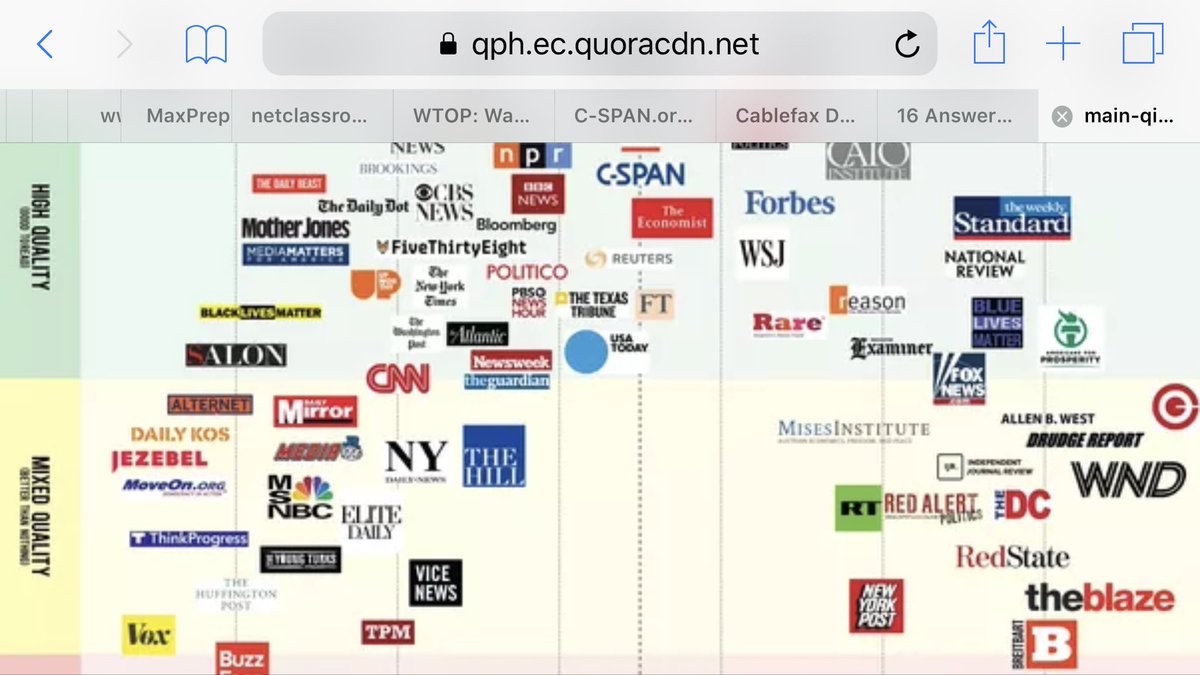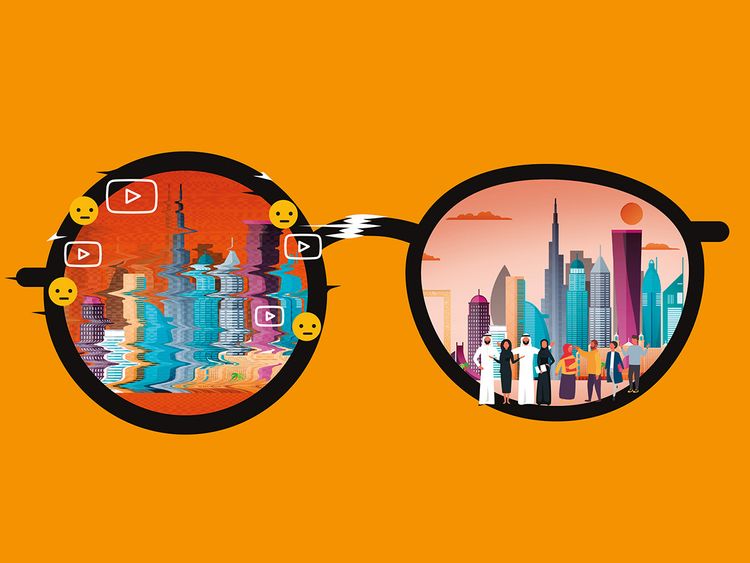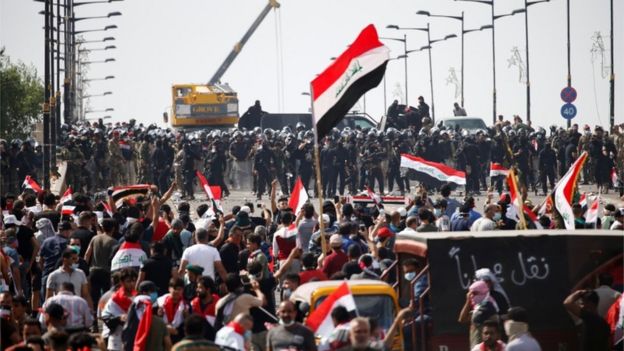Happy to hear that Qatari-Arab Quartet feud is about to be solved. #Qatar is a brethren nation, we are all interlinked by familial relations. I hope that all pending issues are solved and this divide in the #GCC ends, for all to emerge stronger. https://t.co/4FGUj47HCt— Khalaf Ahmad Al Habtoor (@KhalafAlHabtoor) December 3, 2019
Just from skimming the headlines I did become aware of a minor political scuffle between Qatar and its bigger neighbors a few years back. I never got a chance to read deeply into it. But I am glad they are sorting it out. Peace is important. No prosperity without peace. Peacemaking is a skill of the highest order and an endeavor of the highest order. It is grand to make peace.
Qataris, Saudis Make New Bid to Mend a Long-Festering Feud A top Qatari official traveled to Saudi Arabia, but U.S. tempers hopes for ending standoff that hinders efforts to counter Iran ...... a diplomatic breakthrough that signals the most serious effort yet to end a 2½-year rift between U.S. allies in the energy-rich Gulf
Qatari foreign minister's Saudi visit seen easing Gulf rift signs that a 2-1/2-year rift among U.S.-allied Gulf Arab states could soon subside. ....... the highest-level visit since May when Qatar’s prime minister attended an Arab summit in Mecca....... the Saudis seem sincere in trying to figure out the path forward ..... Saudi Arabia, the United Arab Emirates, Bahrain and Egypt cut diplomatic and trade links with Qatar in June 2017, accusing it of backing terrorism. Qatar denies the charge and accuses its neighbors of seeking to curtail its sovereignty...... Kuwait and the United States have tried to mediate the rift, which has undermined Washington’s efforts to confront Iran....... The boycotting nations set 13 demands for lifting the boycott, including closing Al Jazeera television, shuttering a Turkish military base, reducing ties with Iran and cutting links to the Muslim Brotherhood. ....... Riyadh was still waiting for Doha to answer the demands. ...... early efforts at internal reconciliation on Qatar seem to be underway....... A soccer tournament in Qatar kicked off on Tuesday with teams from the UAE, Saudi Arabia and Bahrain, in an apparent sign of improving ties...... A Gulf Arab diplomat said a regional summit expected early next month in Riyadh could lay the groundwork for improving ties which is more likely now than at any recent time....... “We see the Gulf kiss (with noses) coming,” the diplomat said.
Losing Its Grip on Gulf, Saudi Arabia Is Desperate for Political Win Trump's indecision and a wary Congress impel Riyadh to appeasement with neighboring Qatar, which has been under a Saudi-led blockade since 2017 ....... the Saudi envoy to Kuwait, Sultan bin Sa’ad al-Saud, declared that “sports might repair what politics has ruined.” ........ Egypt, the United Arab Emirates and Bahrain joined the boycott and closed their airspace to flights from and to Qatar, with Riyadh sealing shut Qatar’s only land crossing, cutting off a key route for food and construction imports as hostilities mounted. The Saudi team’s plane that landed this week in Qatar was the first to break the siege......... Two years ago Saudi Arabia presented Doha with a number of demands, the most important of which were that it severs ties with Iran and halt its meddling in the affairs of other countries, especially through infuriating activity of the Qatari-owned Al Jazeera network and its broadcast criticism of the Gulf states and Egypt. Not only that Qatar refused to comply with these demands, it also impressively managed to overcome the economic blockade imposed on it with the help of Turkey and Iran and established a number of factories to produce goods that until then had been imported from abroad...........
its citizens, who have the world’s highest per capita incomes.
....... Much to the Saudis’ resentment, despite the tension between the two countries and Qatar’s close cooperation with Iran, Washington continued to maintain excellent relations with the small emirate in which the largest American airbase in the Persian Gulf is located.......... Donald Trump’s efforts over the past two years to bring about reconciliation between Saudi Arabia and Qatar failed. However, it seems that it was precisely Trump's strategic decision to withdraw America from the Middle East that impelled Saudi Arabia toward appeasement with Qatar. ....... The Gulf arena, in which Saudi Arabia had ruled high-handedly, is beginning to look like Swiss cheese. From the Saudi perspective, not only has Qatar become a hostile country, but Oman and Kuwait didn’t join the boycott on Qatar while the United Arab Emirates, Saudis’ ally and strategic partner, decided to abandon the Yemeni front and massage its relations with Iran. A defense accord and economic agreements signed in recent weeks between the UAE and Iran have not ignited hostilities between Saudi Arabia and its neighbor, at least not publicly, but these have been added to the list of bin Salman’s diplomatic flubs.......... The Yemeni front could be the next site of a Saudi diplomatic effort, which if successful would enable bin Salman to claim at least one diplomatic achievement. On November 5 an agreement was signed in Riyadh between the recognized Yemeni government headed by President Abed Rabbo Mansour Hadi, and what is known as the Southern Transitional Council, a military political body that has taken control of the city of Aden with aid from the UAE and is demanding the establishment of an independent state in southern Yemen.............. The agreement that was presided over by Khaled bin Salman, the crown prince's brother, stipulates that within a month’s time a new government will be established in Yemen. Said government will consist of 24 ministers equally divided among representatives of the recognized government and the separatist Southern Transitional Council, and the armies of the two sides will be united into a single army............ The direct responsibility is now incumbent on Salman’s brother Khaled, who has also been given permission to start negotiations with the Iran-backed Shi’ite Houthi rebels in Yemen. Therein lies the more important development that could lead to an end to the war that has been raging for nearly five years and in which approximately 100,000 people have been killed, hundreds of thousands left homeless and millions more are in need of food and medicine..........Oman has already succeeded in setting up direct talks between the Saudi leadership and the Houthi leadership.
....... the direct contact between Khaled bin Salman and the Houthi Supreme Council began in September. Shortly after the attack on the Saudi oil complexes, bin Salman suggested to Houthi leader Mahdi al-Mashat the establishment of two committees – a political committee and a military committee – for direct discussions of a long-term truce and an outline for a diplomatic solution. The Houthis accepted the proposal and dispatched their Deputy Foreign Minister Hussein al-Azzi to Oman on a United Nations ship. From there he flew to Amman, the capital of Jordan, where the meeting was held......... the direct contact between Khaled bin Salman and the Houthi Supreme Council began in September. Shortly after the attack on the Saudi oil complexes, bin Salman suggested to Houthi leader Mahdi al-Mashat the establishment of two committees – a political committee and a military committee – for direct discussions of a long-term truce and an outline for a diplomatic solution. The Houthis accepted the proposal and dispatched their Deputy Foreign Minister Hussein al-Azzi to Oman on a United Nations ship. From there he flew to Amman, the capital of Jordan, where the meeting was held.Saudi Arabia has also sought to de-escalate its conflict with Iran.
The New York Times recently reported that "Saudi Arabia and Iran have taken steps toward indirect talks to try to reduce the tensions" between them. Its main regional ally, the UAE, has also been involved in de-escalation efforts. Earlier this month, Emirati Minister of State for Foreign Affairs Anwar Gargash said further escalation with Iran "serves no one" and that there is room for "collective diplomacy"............ since Trump has failed to deliver on regional security, Saudi Arabia definitely needs a strong and united GCC to deal with the enormous regional challenges. Kuwait's persistent mediation efforts over the past two and a half years have ensured that the door for direct negotiations has remained wide open.Signs Mount That Qatar Embargo May End as Mediation Gears Up signs are emerging that Crown Prince Mohammed bin Salman could be trying to resolve conflicts that have cast a shadow over the kingdom’s political stability. ....... To that end, Prince Mohammed is also intensifying efforts to conclude the four-year war in Yemen ...... The U.A.E., Saudi Arabia’s main ally, has already pulled out most of its troops from Yemen as it seeks to ease tensions with Iran after a string of attacks on oil targets in the region raised fears of an all-out war. ....... The war in Yemen and the crisis with Qatar were widely seen as signs of a more aggressive foreign policy by Prince Mohammed and Abu Dhabi Crown Prince Sheikh Mohammed bin Zayed.
Emir says Qatar has overcome obstacles of Gulf blockade Sheikh Tamim lays out economic achievements, says Doha ready to resolve disputes based on principle of mutual respect....... "We've overcome the obstacles of the blockade and we're also closer to achieving Qatar's national vision for the year 2030," the emir said. ...... Sheikh Tamim said Qatar has always been ready to resolve differences based on the principles of mutual respect and non-interference in internal affairs.
Qatar and Saudi Arabia: Is a thaw in the Gulf cold war in sight? The realisation that Donald Trump's US does not have their back has caused a rethink in Riyadh and Abu Dhabi over how to deal with Doha ........ the three blockading countries have been engaging in a war over narratives with Qatar since – a clash in the information space, which now appears to be ebbing away. ......... Leaders in Riyadh and Abu Dhabi have realised that the weaponisation of narratives has failed to render any desired outcomes .......
Qatar appears economically to be the most resilient state in the Gulf in 2019, its links to the West and Washington in particular remain strong, and its reputation widely untarnished.
.......... Qatar coming out of its shell post-blockade, for the first time proactively explaining its strategies and policies, telling its side of the story of the Arab Spring while openly answering warrantable critical questions from journalists, partners and allies. ........ the apparent fading of Gulf tensions must be understood within the context of a widespread disappointment in Riyadh and Abu Dhabi in US President Donald Trump, whose administration has been the main audience for this war over narratives against Qatar. .......... Despite Tehran pushing the boundaries in a range of escalatory attacks throughout the summer, Washington has remained silent – then the hastily, disorganised US withdrawal from Syria re-emphasised that America has no appetite to defend its interests in the region with hard power. ......... The UAE’s switch from direct to indirect engagement in Yemen via surrogates is as much a product of this re-think as the Saudi decision to open up to the idea of a power-sharing agreement with the Houthis to end the war in Yemen. ....... both Riyadh and Abu Dhabi have reengaged with Tehran, understanding that Washington would not allow the Gulf states to fight Iran to the last American, but that they would be the ones bearing the burden of war. ...........For Qatar, the blockade has been a blessing in disguise, allowing for more independent decision-making domestically and in terms of foreign policy. Reforms could be pushed through without having to de-conflict with its neighbours and new trade relations forged based on cost-efficiency and not neighbourly goodwill.
........ However, the idea that Emir Tamim bin Hamad and Crown Prince Mohammed bin Salman would shake hands to seal a reconciliatory deal in the near future appears utopian at this point.Why the UAE needs to scupper a Saudi deal with Qatar Two years ago, bloodcurdling threats were made by Saudi and Emirati state-controlled goons about what they would do to Qatar if it did not roll over like Bahrain and become a satellite of their bigger, stronger and wiser neighbours........... They were going to dig a canal along Qatar's land border and dump nuclear waste in it. They were going to do to the emir of Qatar what they did to Egypt's president Mohamed Morsi, who was ousted in a military coup. They were going to turn Doha into another Rabaa Square, where 817 Egyptians were massacred......... Physical threats were accompanied by diplomatic ones. In Washington, former administration officials were conscripted to threaten the Gulf peninsula with the withdrawal of the US airforce base at Al Udeid. ......... Qatar did not blink. The overt threats to its national sovereignty turned the emir into an unlikely local hero. ............ Two years into the blockade, Qatar's economy is stronger; it produces more of its own foodstuffs; it has more friends in Washington - as a result of spending a lot of money there - and Al Udeid is even bigger than it was. Al Jazeera continues to broadcast, recently centring a month of programming around the anniversary of the murder of the Saudi journalist Jamal Khashoggi. ............... The policy of attempting to isolate Qatar has obviously gone wrong. What incentive does Mohammed bin Salman have to end it? To answer that question, we have to look at all the other things that have not worked out for the crown prince. ........ The most recent disaster is Saudi Aramco. Plans to raise $100bn on a five percent share sale, opening the Saudi market to foreign investors, have been around for over three years........They came crashing down on Sunday morning. Having failed repeatedly to get $2 trillion valuation he was depending on (the latest consensus was that Aramco was worth between $1.1tn and $1.5tn), the Saudi crown prince ditched the sale of shares on international money markets and announced the sale of 1.5 per cent on a valuation of $1.6-1.7 trillion which would only raise $25.6bn........... Attempting to solve the dispute with Qatar is part of a strategy to rethink where and how all MBS' foreign policy initiatives have gone wrong ...... The attack shook the crown prince, one informed source told me. "He could not have imagined that the Iranians would dare to do this to him. But even worse, he could not have imagined that the Americans would look the other way and do nothing. America has waged wars for less, so how could it have ignored the attacks in this way? Bin Salman now feels vulnerable," the source said. ............ Since the attack, the Saudi crown prince has been speaking to regional leaders, including Iraqi Prime Minister Adel Abdul Mahdi. They all told him that his problems are his own fault. The Saudi crown prince does not need to speak to Turkish President Recep Tayyip Erdogan to know how much damage the October 2018 murder of Jamal Khashoggi - which is still not resolved - has done to the future king's image in the world. .......... .....He also needs the money. Qatar is rich and in surplus. All Gulf disputes end one way or another by a ransom of some sort. ......... A Camp David-style stunt in which the leading Gulf states declare they are normalising relations with Israel has been rumoured for some time. ......... Thus did the self-styled Libyan Field Marshal Khalifa Haftar, who visited Riyadh before launching his attack on Tripoli. So, too, did the then Egyptian defence minister, Abdel Fattah el-Sisi, wait for the green light from Saudi Arabia before proceeding with his coup against late president Mohamed Morsi - even though it had been planned in Abu Dhabi.
EXCLUSIVE: UAE’s secret mission to Iran Tahnoun bin Zayed, UAE national security adviser and crown prince’s brother, has been in Tehran aiming to defuse Gulf crisis ........... Tahnoun bin Zayed, the national security adviser of the United Arab Emirates and the crown prince’s younger brother, has been in Tehran for the last 48 hours on a secret mission aiming to defuse the Gulf crisis ...... It comes amid multiple signs of the UAE following its own, softer line with Tehran, after four tankers were attacked off the Emirati port of Fujairah earlier this year. ......... The Saudis have called on Iraqi prime minister Adel Abdul Mahdi to pass messages to Tehran. ........ Abdul Mahdi was mediating between the leaderships in Riyadh and Tehran and had communicated each side's conditions for talks to the other. ........... The UAE has recently shown more than one sign of pursuing its own path with Iran. It recently announced it was pulling its troops out of Yemen, and has publicly backed southern separatists in the port city of Aden splitting the country in two. .......... Recently, the Iranian backed Houthis and the Emirati-backed southern separatists took part in a prisoner exchange, which has not happened with forces loyal to Hadi.
EXCLUSIVE: Saudi Arabia gives 'green light' for talks with Iran Official in Iraqi Prime Minister Adel Abdul Mahdi's office confirms Baghdad has channels with both sides and is seeking to arrange meeting ....... Saudi Arabia has given a green light to Iraqi Prime Minister Adel Abdul Mahdi to arrange a meeting with Iran as a first step towards de-escalating tensions in the region ...... "The Saudis have conditions before the negotiations process starts and the same with Iranians. We have liaised these conditions to each side. It is not an easy task to get together two opposite sides in terms of their ideology, sect and their alliances in the region." .............
Hasnawi said Abdul Mahdi had called for a meeting between Saudi Arabia and Iran which the Iraqi government would supervise and mediate, with Baghdad as its preferred venue.
....... "If there will be a potential deal in the region that includes Yemen, Syria and Iraq, the Americans have no problem with that" ....... "Saudi Arabia’s conditions are that Iran minimise its role in Yemen and Syria and stop supporting armed groups such as the Houthis. It also asks the Syrian regime to solve its problems with the Syrian opposition groups, and to write a constitution for Syria with all parties agreeing on it," he said............. a war between Saudi Arabia and Iran would mean the “total collapse of the global economy”. ....... On Tuesday, Iranian parliamentary speaker Ali Larijani told Al Jazeera that Iran welcomed the crown prince’s apparent willingness to talk .......... “He told both the Iranians and the Americans Iraq is exhausted after decades of wars, conflicts and civil war.Mohammed bin Zayed: Abu Dhabi's crown prince plays a long game Unlike the rash Saudi crown prince, MbZ knows when to retreat from hard power strategies that aren't working ......... his efforts to propel a small Gulf state onto the world stage as a significant and powerful Middle East player. ......... he is prepared to play the long game and to weigh up consequences and likely outcomes........ to the great chagrin of the Saudis, it is they who are bearing the brunt of international opprobrium. It is the Saudis who are the target of US politicians in both houses and on both sides, while the Emiratis, skilfully piloted by their Washington ambassador Yusuf al-Otaiba, have faced little scrutiny. ......... Now, to the consternation of the Saudis, the Emiratis are drawing down their troops and seem poised for a near complete pullout from the Yemen war. ......... With Iran, events in the chaotic White House of Donald Trump look increasingly to have gone MbZ’s way. The architect of the hardline strategy, National Security Advisor John Bolton, has been abruptly sacked by Trump. Now, this most unpredictable of presidents is ruminating on a meeting with the Iranian President Hassan Rouhani. .............. The ultra-hawk Bolton who had called for regime change is gone, leaving both Mohammed bin Salman and Benjamin Netanyahu, the Israeli prime minister, currently fighting for his political life, out on a limb. It’s a situation that MbZ cleverly avoided by playing down maritime incidents in the Strait of Hormuz, including the apparent mining of oil tankers off the coast of the UAE. ......... He also called for calm and stability at a time when Riyadh, Tel Aviv and Washington were enthusiastically beating the war drums. Now with Bolton gone and President Trump talking of a meeting with Iranian President Hassan Rouhani, that looks a very shrewd call. ....... in the wake of last weekend's drone attacks on the Saudi Aramco oil facilities, which the US immediately blamed on Iran, a senior UAE officials said the attack was a dangerous escalation, but did not assign blame. ...... This is not to say that MbZ has had an entirely successful run. The UAE’s clumsy fake news attack on fellow Gulf Co-operation Council member Qatar in 2017 and the subsequent rupture of the GCC has proved an own goal..........The Qataris have ridden out the economic blockade imposed by the UAE, Saudi Arabia, Bahrain and Egypt, leaving them in the drivers seat, seemingly the only adults in the room. ......... The pivot to soft power is not a retreat, it is a retrenchment by a leader who has proven himself more than able to learn from his mistakes, something his counterpart in Riyadh continues to show himself incapable of doing.
When the Saudis and Emiratis fall out Saudi Arabia and the Emirates have endured decades of rivalry, and tension between the Zayeds and the Sauds is now exploding in Yemen .......... Just over a fortnight after he issued a decree stripping Kashmir of its semi-autonomous status, Indian Prime Minister Narendra Modi will arrive in Abu Dhabi on Friday to collect a prize - the Order of Zayed, the statelet’s highest civilian award......... This makes perfect business sense for the little Sparta of the Gulf, hell-bent on establishing its own seaborne empire, from the ports of Yemen to the Horn of Africa, the Indian Ocean and beyond. ........... India is the third-largest energy consumer in the world and the Emiratis’ second-largest trading partner. So why should the Emiratis care for seven million Kashmiris in Indian-administered Kashmir, whose internationally recognised dispute is now to be treated as an “internal matter” for India............
The Emirati path to the unlimited markets of India is strewn with elephant traps for their neighbour Saudi Arabia.
....... “When the UAE came into existence in December 1971, Riyadh achieved its objective of excluding Qatar and Bahrain from the new federal state. Tremendous Saudi pressure forced the UAE to sign the 1974 Treaty of Jeddah that ceded claims to the Khor al-Udaid inland sea that linked it to Qatar,” Khashan wrote. ........ “Riyadh refused to recognize the UAE’s independence until its president, Zayed bin Sultan, signed the treaty under duress although the UAE has not yet ratified the treaty. When UAE head Khalifa bin Zayed took office in 2004, he visited Riyadh and demanded the treaty’s abrogation, ushering in an explosive crisis between the two states that took six years to subside.” ............ When a young, power-hungry Saudi prince in Mohammad bin Salman happened along, the elder and wiser Abu Dhabi Crown Prince Mohammed bin Zayed was not slow to seize his opportunity........It was he and his ambassador Yousef al-Otaiba, not the Saudi establishment, who beat a path to the door of the Oval Office for Mohammad bin Salman............. A limited circulation monthly report on Saudi Arabia, prepared by the Emirati Policy Centre, a think tank with close links to the UAE’s government and intelligence, notes how cravenly beholden the Saudis are to a vacillating US policy on Iran.Saudi-Qatar Crisis Nearing End, Suggests a Hopeful U.S. Air Force Chief of Staff Washington sees an ongoing political rift that Saudi Arabia, the United Arab Emirates, Bahrain and non-Gulf state Egypt have with Qatar as a threat to efforts to contain Iran and has pushed for a united front ........ Washington has unsuccessfully tried to mediate the dispute, in which the four nations have severed political, trade and transport ties with Qatar since mid-2017 over accusations it supports terrorism.....Doha denies the charge and says the embargo aims to impinge on its sovereignty..........The United States is allied to all six Gulf Arab states. Qatar hosts Al-Udeid air base, the largest U.S. military facility in the region, while Bahrain is home to the Navy's Fifth Fleet........ Emphasising the principle of collective security, Goldfein said the best chance to defend the UAE could be from Qatar or neighbouring Oman........ "Neighbours to the right and to the left who by geometry-alone have a better shot," he said.
Iran's Middle East Empire of Anarchy Can't Survive The grievances animating protests in Lebanon and Iraq are beyond anything Tehran or local leaders can cope with: This isn't an Arab Spring, this is a Persian Autumn ........ For a long time it looked like the spread of Iranian influence across the Middle East was unstoppable. Lebanon has long been in Iran s pocket via Hezbollah. Then the chaos created by the U.S. invasion of Iraq
Qatar Fights Airspace Blockade in Top UN Court
Qatari emir receives invitation from Saudi king to attend Gulf summit
Egypt says Qatar supported Muslim Brotherhood “All the region’s countries were affected by the Qatari interference in their internal affairs,” the Egyptian official noted, explaining that, in 2013, Qatar’s Al-Jazeera TV channel was promoting what he described as “hatred and violence across Egyptians.” ...... Doha denies the allegations saying the boycotting countries are actually working to force a change in government in Qatar.
Another $7 billion of Qatari investments to flow into Turkey "Qatar will continue to invest in Turkey not only in the banking sector but also in the real estate sector. Some 35% of the $10 billion that Qatar has committed has been invested, and there is another $7 billion to flow into Turkey. Investments follow healthy political relations, and our relations with Turkey date back centuries" ..........
Qatar was Turkey's largest foreign investor last year
, according to Al-Jaida, who added that the two countries have healthy political relations and that the heads of states share a common strategic perspective on global developments. ....... The two allies' close economic ties strengthened significantly after a Saudi-led embargo on Qatar. Ankara emerged as one of Qatar's top partners since the Saudi Arabia-led bloc launched a trade and diplomatic boycott of the Gulf state in 2017, sending additional troops and food to meet Qatar's needs just after the embargo began. ........ Turkish investments in Qatar are projected to be worth some $17 billion ........ Malaysia serves as a door for Asia, Qatar for Africa and the Middle East and Turkey for EuropeUAE OFFICIALLY BACKS SYRIA'S ASSAD TO WIN WAR The UAE's position has in some ways been more moderate than neighboring Saudi Arabia, with Abu Dhabi openly seeking to rebuild ties with Syria and avoid outright tensions with Iran, whose revolutionary Shiite Islamic Republic backed Assad and was engaged in a bout for regional influence with Sunni Muslim monarchies on the Arabian Peninsula. The UAE's recent moves, however, came amid changing power dynamics across the Middle East....... The UAE was among the many nations to shutter its embassy in Syria in 2011, as mass anti-government protests devolved into all-out war and it later joined the likes of the U.S., Qatar, Saudi Arabia, Turkey and, even to some extent, Israel in backing various insurgent groups looking to overthrow Assad. This backing declined amid ideological infighting among such fighters, along with the rise of the Islamic State militant group (ISIS) and Russia's entry into the battle on the government's behalf in 2015. ........... Moscow's success in gathering rival parties for talks in Syria has helped cement its burgeoning status as a top diplomatic power in the region and has galvanized Gulf Cooperation Council nations to engage Russia, which has largely worked with non-Arab powers Iran and Turkey. As Russian troops assumed U.S. military positions left behind to avoid a fight between NATO ally Turkey and Pentagon-backed Kurdish fighters in northern Syria, Russian President Vladimir Putin made back-to-back visits to Saudi Arabia and the UAE.
An Islamic perspective of Qatar diplomatic crisis Trade cooperation between Qatar and those four countries make up 86 percent of the total trade Doha undertakes with Arab countries. ...... Qatari nationals and residents have been denied the right to perform Hajj and Umra because of the blockade .......
If we look at the Islamic traditions, there is a strong prohibition on mutual hostility and division among the people. Prophet Muhammad, for instance, states that: “Do not cut ties with each other and do not hate each other. It is not lawful for a Muslim to not greet his brothers or sisters for over three days...... “And hold firmly to the rope of Allah all together and do not become divided. And remember the favor of Allah upon you – when you were enemies and He brought your hearts together and you became, by His favor, brothers.”
........ The main lesson is thatIslam forbids disputes, animosity and divisions that occur between fellow human beings, and it actually calls upon the people to unite with each other. That is the true teaching of Islam.
....... cutting ties with Qatar is something that is strongly prohibited, more so restricting them to worship. ........ “A believer with another believer is like a sturdy building that reinforces one another.” This message calls the people to help one another, instead of making each other difficult. Saudi Arabia and other Arab countries should understand that the blockade has imposed various difficulties on Qatar. ......... Saudi Arabia should understand that Islam does not justify hostility between fellow Muslims as stated in several Qur’anic verses and Hadith.Regarding foreign policy, Qatar's independent regional course led to it supporting popular demands for democratic change in the Arab world, especially during the Arab Spring revolts throughout the Middle East and North Africa.
....... "The Saudi and Emirati leaders have led a coalition of Arab regimes that supported the reversal of gains made by Arab societies during the Arab Spring upheavals and the restoration of authoritarian rule in the region," said Majed al-Ansari, a professor of political sociology at Qatar University.......... Al-Ansari added smaller Gulf states have historically been cautious of Saudi Arabia because of its attempts to dominate the Gulf region............ Because Qatar has used its "soft power" in the form of diplomacy and international media networks to highlight demands for reform in the region, it has become marked by the Saudi-Emirati axis ......... Doha has proved remarkably resilient to the pressure applied by the blockading countries, which initially expected to bring it back into the fold within weeks of launching the punitive measures........ the Gulf Cooperation Council will end up becoming a shell of its former self as Saudi Arabia, the UAE, and Qatar branch out seeking regional and international partners who share their political and security objectives.Two Years Later, Qatar Has Shrugged Off Saudi Embargo Two years ago today, the tottering edifice known as the Gulf Cooperation Council collapsed in a heap when three of its members—Saudi Arabia, the United Arab Emirates and Bahrain—announced an embargo on a fourth, Qatar. The troika, joined by Egypt, claimed to be punishing the rulers in Doha for an array of sins, including their relationships with Iran and the Muslim Brotherhood........ Their calculation: An embargo would shake Qatar’s economy and weaken its ruling Al Thani family, forcing them, among other things, to fall in line with the Saudi-led Arab phalanx against Iran.
Is the Blockade of Qatar a Blessing in Disguise? Not so long ago, the quickest means to resolve a dispute between two sovereign states was going to war. This form of intervention has lost favor in the 21st century, but that does not mean that we live in a world of perfect harmony. ........ The conventional armed confrontation is now replaced by a popular strategy called blockade. ....... The hapless countries that have found themselves at the receiving end are the perpetual problem state North Korea, the ever-defiant Iran, and the enormously wealthy microstate of Qatar. ............. The blockading states claim Qatar’s regime is responsible for promoting “terrorism” and “destabilizing the region.” ........ And then there is the issue of Qatar’s sponsorship of the powerful media outlet Al Jazeera. Needless to say, this institution has been singularly responsible for bringing about a seismic transformation in the nature of governance in the region by exposing all sorts of irregularities and political taboos in the murky world of Middle Eastern politics. ........ microstate Qatar, with 2.7 million inhabitants, punches well above its weight in regional and international politics. ......... more states in the region have stood by Qatar than those who have called quits against this small country with a big personality. ....... The blockade allowed Qatar’s regime to engage in massive economic charm offensives in the region and managed to win over new regional powers such as Turkey. Doha also weathered criticism or any possible fallout at the international level by pursuing a vigorous diplomatic campaign, which highlighted that the country has been simply maligned by devious powers and regimes in the region.......
Two years down the line, people on the streets of Qatar argue that the blockade was a blessing in disguise. The isolation brought the Qataris together and infused in them a spirit of national fervor never seen before..... The country is gradually moving away from an immediate dependency on neighbors to a market economy where there is greater reliance on self-sufficiency. Qatar is also energetically opening up new economic linkages with far away powers and economies.
Turkey’s Support for Qatar Goes Beyond Damaged Ties with Saudi Arabia and UAE When Saudi Arabia and the United Arab Emirates shocked the world by declaring an economic blockade on their tiny neighbor Qatar in the summer of 2017, they probably didn’t expect Turkey to come to Doha’s aid so quickly and forcefully........ After all, Turkey’s trade and investment links with Saudi Arabia and the UAE were much larger than its ties with Qatar....... he went all-in with full economic and military aid, enabling Qatar to resist the blockade...... Qatar’s small population of just 2.7 million of which only 12 percent are citizens. ........ Turkey’s support for Qatar has not only damaged its ties with Saudi Arabia and the UAE but also motivated these countries to frustrate Turkey’s efforts to increase diplomatic and economic links with other countries throughout the Arab world.
Six European Countries Join Barter System for Iran Trade France, Germany, and the United Kingdom on Saturday welcomed six new European countries to the INSTEX barter mechanism, which is designed to circumvent U.S. sanctions against trade with Iran by avoiding use of the dollar.
Bankers Are Sick of Choosing Sides Between Qatar and Saudi Arabia For top dealmakers, the Gulf diplomatic standoff isn’t good for business. ........ Executives from HSBC Holdings Plc, Goldman Sachs Group Inc. and other global banks are intensifying efforts to repair ties with Qatar’s finance ministry and sovereign wealth fund, according to interviews with people close to the lenders and Qatar’s government. While the kingdom remains key for business, some bankers regret diverting their attention from Doha after being blindsided when the Saudis delayed the sale of a stake in oil giant Aramco in July, they said. .......... “MBS has changed the rules of the game in terms of Saudi domestic and economic policy, without much sense of what the new rules are,” said Gregory Gause, a professor of international affairs and a Saudi specialist at Texas A&M University. “That is going to discourage investment. His risk-taking on the international scene is similarly going to cause doubts for international investors.” ......... The tide moved in Doha’s favor when Saudi Arabia did an about-face on the Aramco IPO that many banks were counting for big fee payouts ........ Many regional representatives who attended
pulled their neck ties over their badges to conceal their identity, something they didn’t do at Euromoney or the Doha Forum in December
. ......... Qatar is spending $25 billion on infrastructure upgrades this year to prepare for the 2022 World Cup. It’s also building liquefied natural gas capacity to add $40 billion to revenue by 2024, furnishing the $320 billion Qatar Investment Authority with more cash.The fund is currently eyeing U.S. tech acquisitions
to balance holdings in European bank stocks and London property.Inching away from Saudi-UAE axis, Jordan restores ties with Qatar Qatar hosts tens of thousands of skilled Jordanian workers whose remittances help the faltering economy back home. ....... Jordan and Qatar announced the restoration of full diplomatic ties by naming their respective ambassadors, two years after Amman downgraded its relations with Doha due to pressure from a Saudi-led block........ Following an economic crisis and popular unrest in June 2018, Qatar rushed an economic aid package to Jordan worth $500m and offered 10,000 jobs for Jordanian citizens to work in Qatar......Qatar already hosts tens of thousands of skilled Jordanian workers whose remittances help the faltering economy back home.......... The move was seen as part of Qatar's "soft power diplomacy" in the region and to court Jordan away from Doha's regional foes. ....... Jordan is under intense pressure from Saudi Arabia and the UAE, who attach political conditions to their assistance, such as accepting American plans for ending the "two-state solution" to the Palestinian-Israeli conflict. ....... The occupied Palestinian territories of the West Bank and East Jerusalem were part of Jordan when Israel seized them during the 1967 war. Millions of Palestinians remain Jordanian citizens today.
Qatar To Saudi Arabia: We'd Rather Quit OPEC Than Cut Ties With Iran Or Close Al Jazeera the tiny Persian Gulf monarchy, with just 300,000 citizens. ....... Gas exports have helped Qatar create a big international profile by hosting sporting events including the upcoming 2022 World Cup, mediating regional conflicts, and especially by bankrolling the provocative Al Jazeera TV network. ........ Natural gas exports have allowed Qataris to become the world’s richest people. They’ve used that income to extract themselves from historic dominance by neighboring Saudi Arabia, OPEC’s de facto leader. ....... Over the years, the Saudis have tried to bring wayward Qatar to heel. In 1996, Riyadh backed a failed coup attempt. Since June 2017, Riyadh joined the UAE in imposing a trade and travel blockade on the maverick monarchy. ........ The embargo has failed to achieve a single one of its strategic goals, which include cutting links with Iran, the country with which Qatar shares its primary natural gas field, and shutting down Al Jazeera. ........



